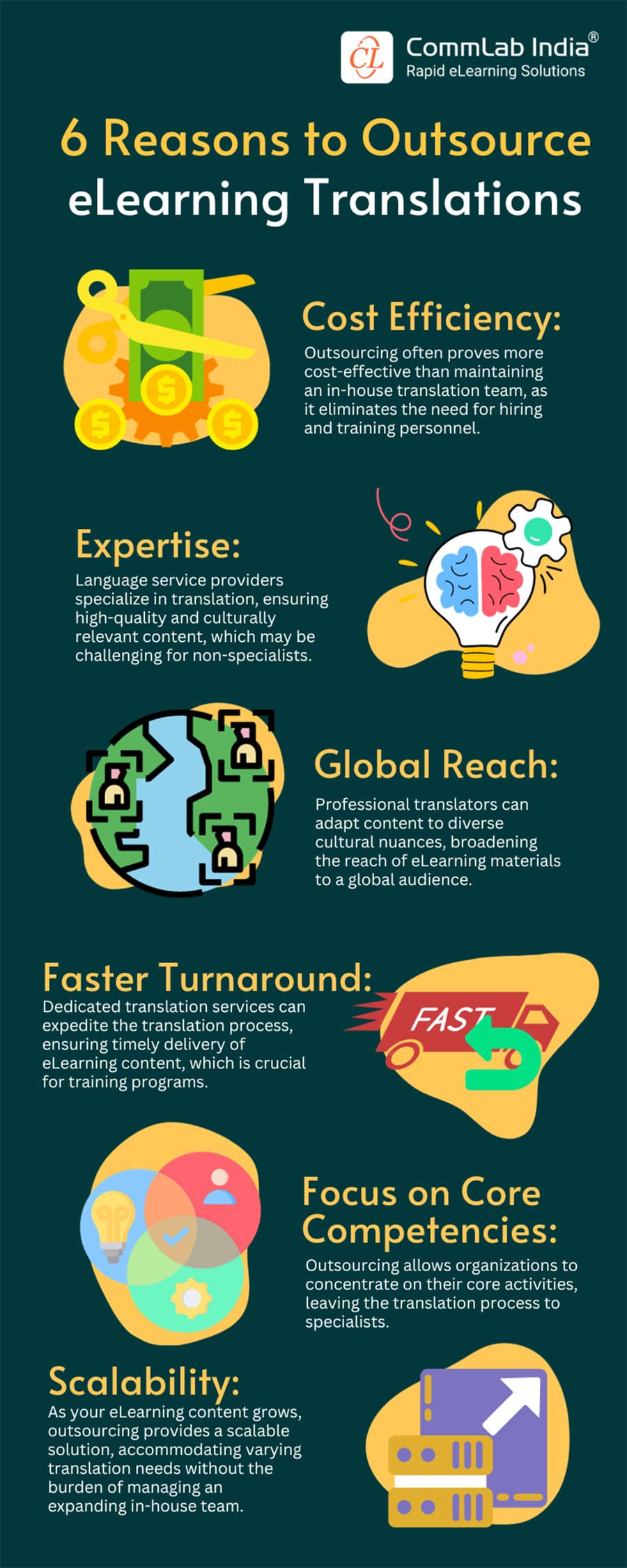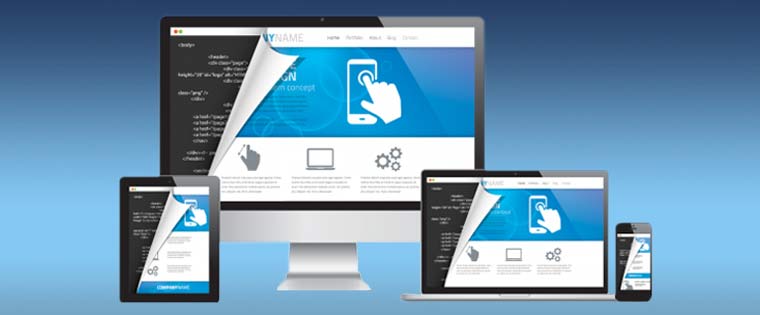4 Key Considerations When Outsourcing eLearning Translations [Infographic]
![4 Key Considerations When Outsourcing eLearning Translations [Infographic] 4 Key Considerations When Outsourcing eLearning Translations [Infographic]](https://blog.commlabindia.com/hubfs/blogs/elearning-translations-outsourcing-tips-infographic.jpg)
Embarking on a global journey with your eLearning content? Imagine effortlessly breaking language barriers and reaching a diverse audience. That's the magic of eLearning translation outsourcing! In a world where learning knows no borders, translating your courses opens doors to a broader, more inclusive learning experience.
Creating multilingual online training courses can be a breeze with an exceptional in-house team. Yet, what if you lack the necessary expertise? The search for translators and language experts, coupled with the need for various tools, can be daunting. Here, outsourcing becomes the solution, enabling the development of precisely translated eLearning courses without sacrificing quality, budget, or turnaround time.
Reasons to Outsource eLearning Translations
4 Key Considerations for eLearning Translation Outsourcing
Quality Assurance
A smooth and productive multilingual learning environment requires a systematic strategy that places a high value on linguistic proficiency and quality control. Due to their natural grasp of idioms, cultural contexts, and linguistic nuances, native speakers are better able to create content that learners will find relatable.
Moreover, rigorous quality control processes play a pivotal role in maintaining the integrity of multilingual eLearning courses. Implementing meticulous review mechanisms helps identify and rectify any linguistic or cultural discrepancies, guaranteeing that the translated content aligns seamlessly with the original material. This commitment to quality assurance ensures that global learners receive a consistent, high-quality learning experience, fostering comprehension and engagement across language barriers.
→ Download Now: Translation-friendly Safety Training [Casestudy]
Cultural Sensitivity
It’s crucial to consider the cultural nuances of your target audience when translating eLearning to ensure that the content not only accurately conveys information but also resonates with the cultural context, making the learning experience more relatable and effective across diverse regions.
Considerations for cultural nuances extend to visuals, scenarios, and examples used in eLearning courses. Images, symbols, and case studies should align with the cultural background of the learners, ensuring that the content feels familiar and relatable. This approach fosters a deeper connection between the learner and the material, enhancing comprehension and retention.
Technology and Tools
Embracing cutting-edge translation tools and technologies revolutionizes the translation process. AI-enabled tools and machine translation have become indispensable allies, simplifying translation with precision and efficiency. Large volumes of content may be translated quickly thanks to these technologies, which speed up the deployment of eLearning programs.
Furthermore, the use of latest tools allows for real-time updates and modifications, accommodating changes or additions to the content swiftly. This agility is particularly crucial in dynamic industries where keeping training materials up-to-date is necessary.
A Trustworthy Vendor
The effectiveness of outsourcing eLearning translation ultimately comes down to choosing the best vendor. So, choose a partner who has a track record of success and positive client testimonials. This not only ensures the quality of the translated content but also reflects their commitment to meeting client expectations.
A trustworthy translation partner for eLearning translations should be excellent at communicating, meeting deadlines, and facilitating a smooth working relationship. By choosing an outsourcing vendor with a strong reputation and a focus, you set the foundation for successful and efficient eLearning translation outsourcing.
To Sum Up!
Outsourcing eLearning translations is a strategic move that organizations make to ensure the seamless adaptation of their learning content for a global audience. By outsourcing eLearning translations, businesses can tap into the expertise of linguists and cultural experts, ensuring that content not only gets translated accurately but also aligns with the learning goals of the target audience.
Want to know more about eLearning translations? Explore how we effectively provided translation options for safety training tailored for a global audience in the entertainment industry. Access our case study for in-depth insights.







